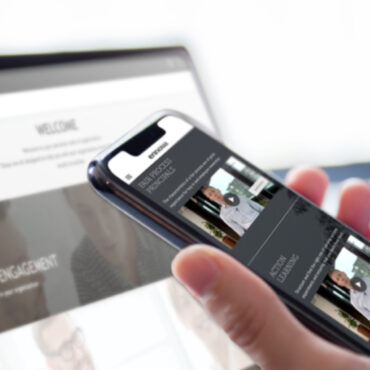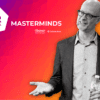
Transforming Organizations Through Employee Experience – Conversation with Elena Aylott
today2023.04.20. 1306

WHY SHOULD YOU CARE?
Employee experience has become an integral component of organizational success, yet its definition remains murky and transformation is hard to measure. Here we sit down with Elena Aylott, Vice President Global Employee Experience of Oriflame Cosmetics, to gain insight from her experiences guiding this transformation journey through employee experience.

How should employee experience be approached, and what does it entail – going beyond parties and receptions?
Employee experience goes far beyond fun events and perks; at its core, employee experience design involves creating an end-to-end employee journey experience that addresses recruitment through retirement. This involves aligning HR operations, culture and engagement initiatives, leadership development plans, and employee well-being initiatives with business transformation efforts as part of this holistic strategy that must bring together various stakeholders and functions into one coherent entity.
Could you share an example of this approach at Oriflame Cosmetics?
At Oriflame, we began their employee experience journey seven years ago and recently transformed the entire company to experience zones based on our design. These experience areas include product experience, customer experience, business tech and digital experience – we tested marketing and sales activities on employees first in hopes that if they are interested then customers would too – this approach has allowed us to connect the dots between various areas of the business while aligning brand narrative with culture narrative.
Have you experienced resistance or skepticism towards employee experience programs, and what benefits have resulted from them?
Gaining buy-in for employee experience was not an easy feat, given its unfamiliar and often unknown nature in organizations. But once results began showing their impact, support came more easily – with benefits such as increased engagement, retention, productivity, company culture cohesion, and alignment becoming apparent as results came in. Employee experience management should no longer be seen as just another nice-to-have but as an essential factor in business success.
Would you share any advice with organizations that are beginning their employee experience journeys?
To maximize employee experience initiatives successfully, my advice would be to start small and focus on what really matters to employees. Don’t attempt to change everything immediately; rather prioritize areas where you can have the highest impact. Also listen to and involve employees as this will ultimately determine the success of your efforts. Finally, measure and communicate impact so as to maintain momentum for long-term initiatives.
Employee experience is an individual journey that needs to be addressed carefully and persistently over time. By investing in employee experience initiatives, organizations can not only improve internal operations and culture but also their customer and brand experiences – as demonstrated by Elena Aylott’s work, employee experience can transform organizations but it takes commitment, collaboration, and a long-term plan in order to make real changes that bring tangible benefits.

Written by: Mihaly Nagy
Culture Employee Engagement Employee Experience HR Strategy Strategy & Transformation
Previous post

- 82
labelArticles today2023.04.17.
Ennova Joins Employee Experience Impact Forum in Amsterdam as Sponsoring Partner
The HR Congress team is pleased to announce that Ennova, a leading provider of employee experience solutions, is a sponsoring partner of the Employee Experience Impact Forum, organized by The [...]
Similar posts

labelArticles today2024.10.21.
The success-recipe to build agile and future-ready organizations in 2025 and beyond







Post comments (0)